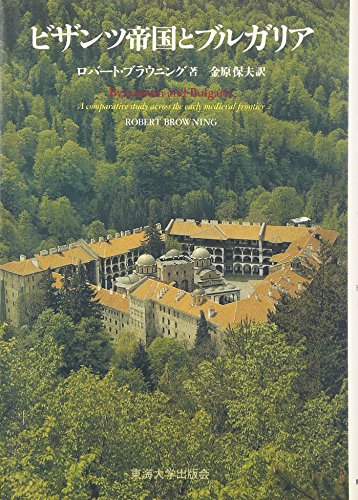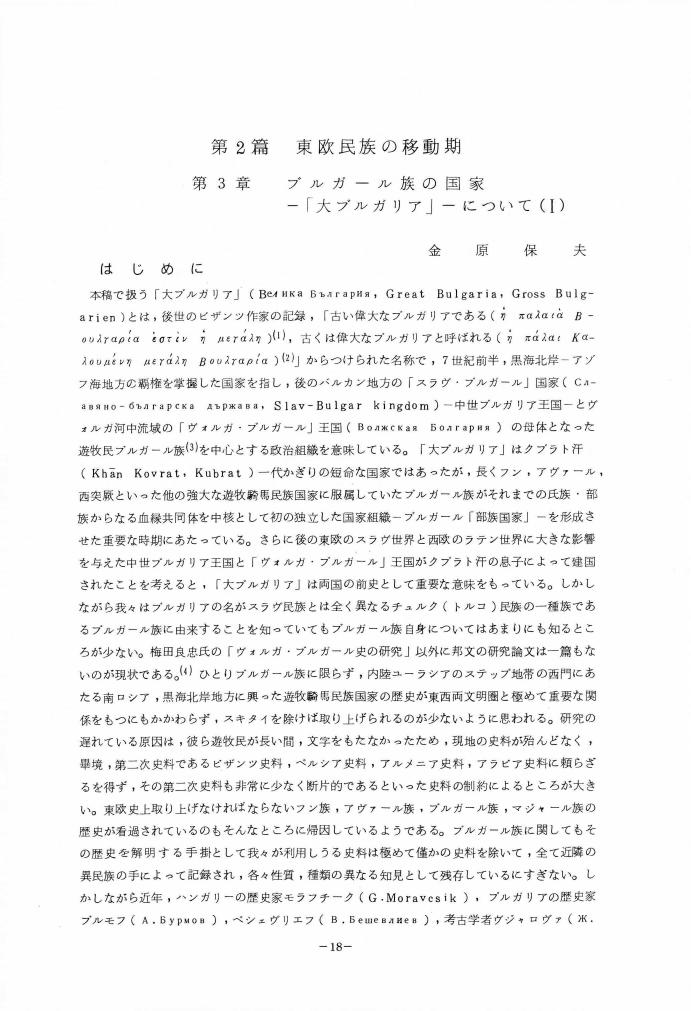8 0 0 0 OA 第1次ブルガリア王国における君主号
- 著者
- 金原 保夫
- 出版者
- 一般社団法人 日本オリエント学会
- 雑誌
- オリエント (ISSN:00305219)
- 巻号頁・発行日
- vol.40, no.2, pp.51-68, 1997 (Released:2010-03-12)
The First Bulgarian Kingdom was established by the Turkic nomads Bulgars. Gradually the Bulgars were assimilated to the Slav majority, but the Bulgarian aristocracy kept supremacy for a long time. In the political structure of the state were existed a traditional institution and titles of the Bulgars.In this paper, the author consider the role of the ruler, especially take notice of the title, the authority and the succession of the throne. There were so many titles of the Bulgarian ruler, but six of them were used in the country. They were αρχων, καισαρ, πατρικιος, KANAσγBIΓI, _??__??__??__??__??__??_<_??__??__??__??_, _??__??__??__??__??__??_<_??__??__??__??_. Kαισαρ and πατρικιος are the Byzantine title of nobility. Two titles αρχων and KANAσγBIΓI were used at the same time. The Byzantine title αρχων was used mainly externally. KANAσγBIΓI, which was a Turkic compound title, consisted of two words KANA and σγBIΓI. Professor V. Besevliev explained that KANA was a rulal title of the nomadic state qan<qaγan and σγBIΓI was a compound word sü-bäg-i, i. e. “commander in chief.” But this theory is still in a hypothesis.Bulgarian ruler came to hold both the secular power and spiritual authority. Bulgars were believers of Shamanism. They had a concept of the divine right of kings. The throne of the ruler of the Bulgarian state was exclusively in the hands of the royal clan, the Dulo, the Vokil and the clan of Krum. The position of the ruler was hereditary normally passing from father to eldest son, who was called καναρτικεινος. The order of the succession of the throne proved to be useful in stability and reinforcement of a government.
4 0 0 0 ビザンツ帝国とブルガリア
- 著者
- ロバート・ブラウニング著 金原保夫訳
- 出版者
- 東海大学出版会
- 巻号頁・発行日
- 1995
3 0 0 0 OA 第3章 ブルガール族の国家―「大ブルガリア」―について(I)
- 著者
- 金原 保夫
- 出版者
- 東欧史研究会
- 雑誌
- 東欧史研究 (ISSN:03866904)
- 巻号頁・発行日
- vol.1, pp.18-33, 1978 (Released:2017-09-28)

